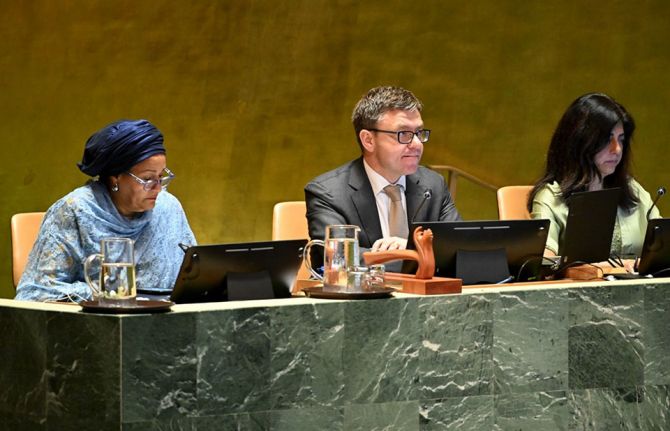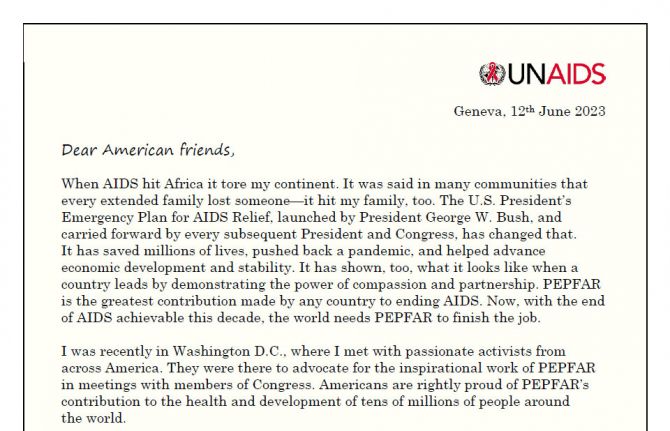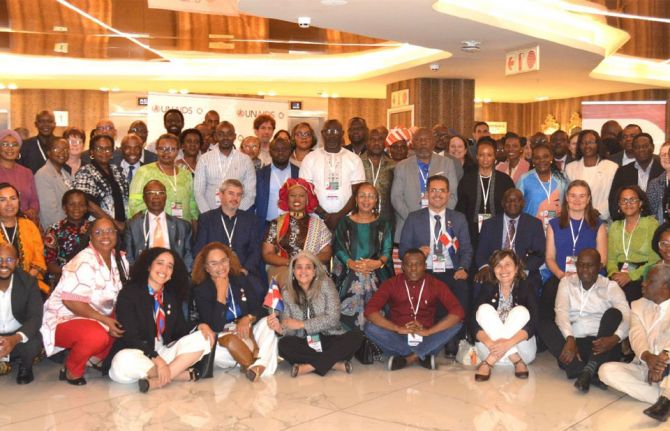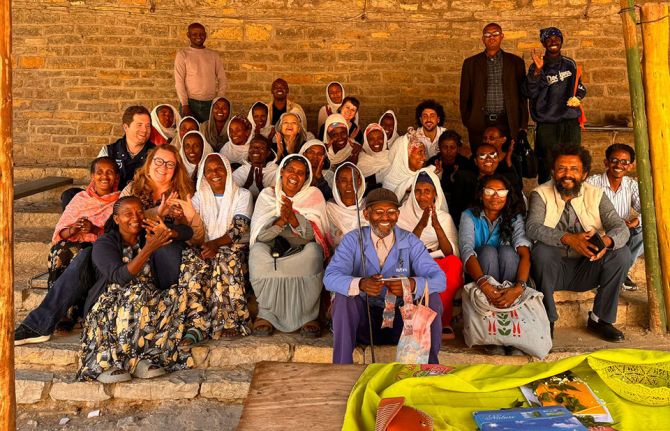
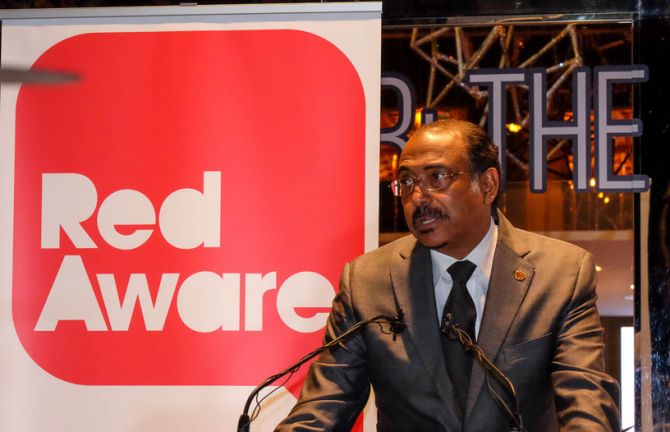
UNAIDS Executive Director Michel Sidibé speaks at the lighting of the AIDS2014 sign on the Princes Bridge in Melbourne, Australia, 18 July 2014.
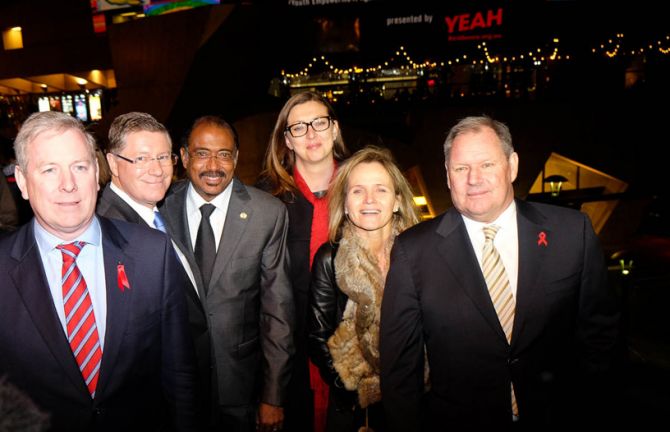
Victorian Premier Denis Napthine; Victorian Minister for Health David Davis; UNAIDS Executive Director Michel Sidibé; YEAH CEO Alischa Ross; Co-Chair of AIDS2014 Sharon Lewin; Lord Mayor of Melbourne Robert Doyle at the lighting of the AIDS2014 sign on the Princes Bridge in Melbourne Australia, 18 July 2014.
Feature Story
AIDS 2014 opens in Melbourne overshadowed by an international tragedy
18 July 2014
18 July 2014 18 July 2014AIDS 2014 opened overshadowed by an international tragedy. During a ceremonial inauguration to welcome the conference participants to the city, the organizers expressed deep sadness for the loss of the many delegates travelling on flight MH17.
Speakers at the event stressed the importance of honouring the legacy of the researchers and AIDS advocates who died by increasing efforts and commitments to pursue their cause. “It is a difficult moment. We lost friends, activists and people who are the voice of the voiceless,” said UNAIDS Executive Director Michel Sidibé.
The Premier of Victoria, Denis Napthine, said, “This is a massive loss to our community, who worked together across the world to tackle HIV.”
Mr Sidibé participated together with the Lord Mayor of Melbourne, Robert Doyle, and the co-chair of the AIDS 2014 conference, Sharon Lewin, in the lighting of the AIDS 2014 sign event. Messages from international leaders, including President Barack Obama, the Lord Mayor of Melbourne, and the Mayors of Milan, Osaka, Tianjin and Thessaloniki, were projected onto the façade of the Arts Centre Melbourne’s Hamer Hall. Mr Sidibé’s message read “Ending AIDS is the only dream we should all have.”
The 20th International AIDS conference will take place from 20 to 25 July in the Australian city of Melbourne under the theme “Stepping up the pace”.
AIDS 2014
Delegates from all over the world will participate in a series of sessions, panels and community-led discussions to take stock of the progress made, analyse the latest scientific advances and mobilize governments and communities to chart the way forward to end the AIDS epidemic.
This year’s theme recognizes the many advances made in the past few years in the areas of vaccine research, the growing number of people receiving antiretroviral therapy and the falling number of new HIV infections. However, “Stepping up the pace” also stresses the need to keep HIV as a priority in the global agenda and that more investments, collaborative research and political commitment are needed to ensure that no one is left behind.
UNAIDS Executive Director Michel Sidibé will be among the high-level speakers participating in the conference, together with President Bill Clinton and artist and activist Bob Geldof. UNAIDS will be participating in a number of events before and during the conference, including the preconference sessions on youth, men who have sex with men, and interfaith communities, as well as other sessions on HIV treatment, adolescents, prevention of mother-to-child transmission and human rights, among others.
Related


Illustration on the cover page of the report.
Feature Story
Urgent need for sensitive social protection schemes for people living with HIV
30 June 2014
30 June 2014 30 June 2014People living with HIV who have access to social protection programmes enjoy a range of benefits, such as being more likely to retain their jobs and keep their children in school, but too many of the most vulnerable are out of reach of these programmes, says a new report by the International Labour Organization (ILO).
Access to and effects of social protection on workers living with HIV and their households draws its conclusions from research conducted in four countries, Guatemala, Indonesia, Rwanda and Ukraine, that are currently developing or scaling up their social security systems.
Across the countries a variety of social protection schemes are used to support the most vulnerable and to avoid increased vulnerability. These include establishing poverty alleviation and reduction programmes, prioritizing the poor in economic development strategies, providing access to social security systems, greater labour opportunities for women, and providing health insurance and pensions and social assistance for low-income individuals and families.
The report notes that social protection programmes can reduce the disadvantages, inequalities and structural barriers that make people more vulnerable to HIV. It reveals that, in the studied countries, between 63% and 95% of people living with HIV who had access to social protection were able to keep their jobs or some form of productive activity, 49–99% said that their children remained in school and 72–86% were able to access life-saving antiretroviral treatment.
It notes that the social protection systems of the four governments are much more readily accessed by those under the umbrella of the public and formal sectors. People living with HIV are often in the informal economy and therefore much more likely to miss out. This may be a particular issue for women and key populations at higher risk.
There is a tendency to address HIV by concentrating on enabling access to HIV treatment. The study stresses that in order to be effective, a social protection safety net that works for HIV-positive people must be multilayered, addressing wider social and economic vulnerabilities, and not just about making free antiretroviral medicines available.
Access to antiretroviral treatment keeps people living with HIV alive. But too often, the lack of broader social protection benefits keeps women and men, and their households, vulnerable and poor.
Alice Ouedraogo, Chief of ILO’s HIV/AIDS and the World of Work Branch (ILOAIDS)
“Access to antiretroviral treatment keeps people living with HIV alive. But too often, the lack of broader social protection benefits keeps women and men, and their households, vulnerable and poor,” said Alice Ouedraogo, Chief of ILO’s HIV/AIDS and the World of Work Branch, which produced the report.
The study examines a number of challenges to accessing services, such as a lack of awareness that the programmes actually exist or that the process involved in getting services is too complicated or cumbersome.
There is also the issue of out-of-pocket expenses, including transport costs to get to health centres and money to pay for treatment of opportunistic infections. ILO argues that a combination of income, livelihood and employment support is needed, in addition to health services, to further increase the impact of social protection.
“As we prepare for the post-2015 development agenda, it is important to invest in policies and programmes that leave no one behind, including people living with HIV and key populations,” Ms Ouedraogo concluded.
Aditya Wardhana, Executive Director of the Indonesia AIDS Coalition, welcomed the new research and the light it shines on a key area that has so far received relatively little attention. He said, “ILO’s research has opened a discourse on the urgent need for a sensitive social protection scheme towards people living with HIV and AIDS-affected communities, who have been long neglected by the existing social protection system.”
Related


Julio Montaner, Director, British Columbia Centre for Excellence in HIV/AIDS; Terry Lake, Minister of Health, Government of BC; Christy Clark, Premier, Government of BC, Tiko Kerr, artist living with HIV; and UNAIDS Executive Director, upon presentation of artwork by Tiko Kerr depicting the change in 10-C Ward at St. Paul’s Hospital in Vancouver.
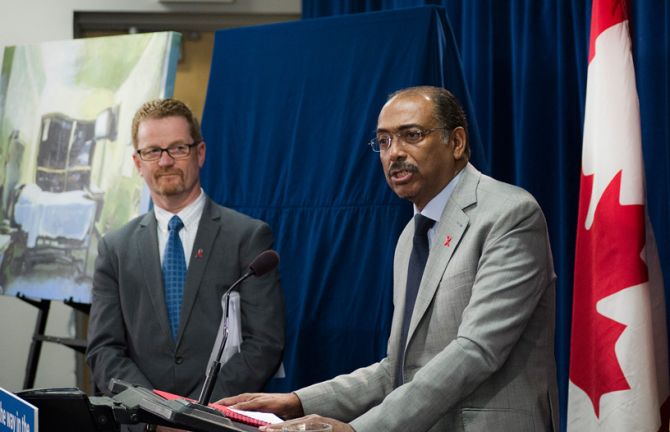
UNAIDS Executive Director addressing the 10-C Ward event in Vancouver, with Terry Lake, Minister of Health, Government of British Columbia.
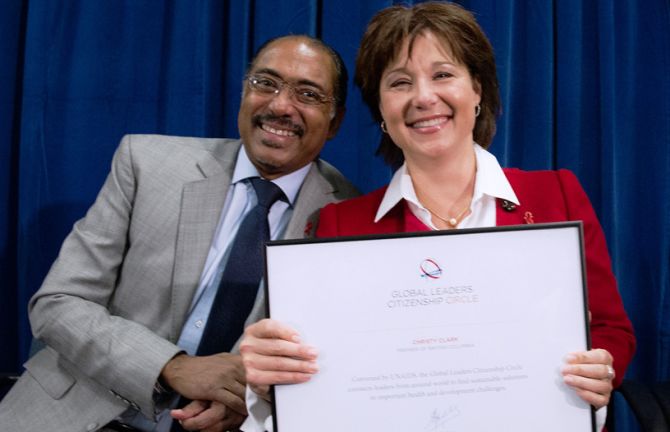
UNAIDS Executive Director with Christy Clark, Premier, Government of British Columbia, upon the Premier’s introduction to the UNAIDS Global Leaders Citizenship Circle.
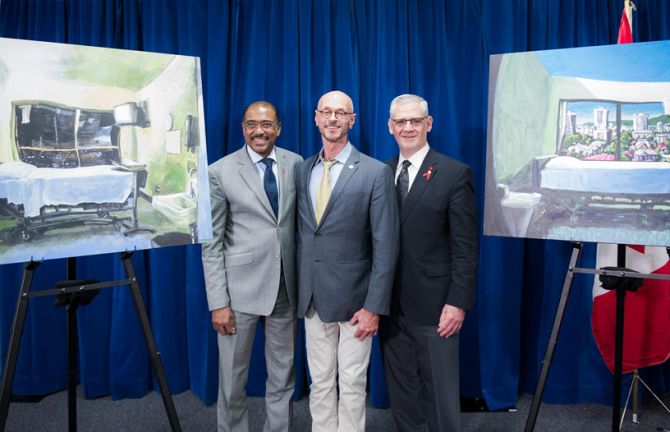
UNAIDS Executive Director; Tiko Kerr, artist living with HIV; and Julio Montaner, Director, BC Centre for Excellence in HIV/AIDS; upon presentation of two paintings by Tiko Kerr depicting the changes in 10-C Ward at St. Paul’s Hospital in Vancouver.
Feature Story
British Columbia repurposes its AIDS Ward, opening new opportunities for HIV treatment
28 May 2014
28 May 2014 28 May 2014They called it Ward 10C. Never “the AIDS ward.” But it was understood that this was the place where patients went if they had HIV. Stigma and despair overshadowed the limited medical interventions that could be provided. Opened in 1997, the ward saw an average of one AIDS-related death every day during its darkest days.
But today, in a historic symbolic move, St. Paul’s Hospital in Vancouver announced that Ward 10C has outlived its role as the place where life ended.
British Columbia Premier Christy Clark and other officials led an official ceremony on Tuesday lauding the ward’s metamorphosis as a sign that AIDS is no longer a death sentence, and that HIV is virtually under control in the province.
The ward’s new purpose will be to provide cutting-edge care and treatment for people living with HIV, as well as treatment related to bacterial and viral infections like chronic hepatitis B and C among people at risk for HIV.
According to the government, AIDS deaths have fallen by more than 80% in the past decade and new HIV infections have been cut by two-thirds in the province.
Julio Montaner, a leader in the movement for early treatment and his team at the BC Centre for Excellence in HIV/AIDS, showed that by receiving early antiretroviral treatment, people living with HIV can not only survive and thrive—but also reduce their risk of transmitting the virus to partners.
At Tuesday’s ceremony on Ward 10C, Dr Montaner said that when he proposed HIV treatment could prevent new infections, “I was not a popular kid, they told me I was crazy, not only in my backyard but all around the world—now we are seeing AIDS begin to disappear. We did it and everybody else can do it.”
“Thanks to the expansion of access to treatment, people are living longer, healthier lives and we’re starting to see HIV clinics close, it’s a significant step towards ending the epidemic.” said Michel Sidibé, Executive Director of UNAIDS. At the ceremony, he also announced Dr Montaner’s appointment as UNAIDS’ Global Advisor for Treatment.
Mr Sidibé praised Premier Clark for what she and her government have done for the AIDS response in British Columbia and internationally. And he reminded the audience that some 18 million people, in low- and middle-income countries, still do not have access to antiretroviral treatment, “Only with global solidarity, can we ensure that no-one is left behind.”

